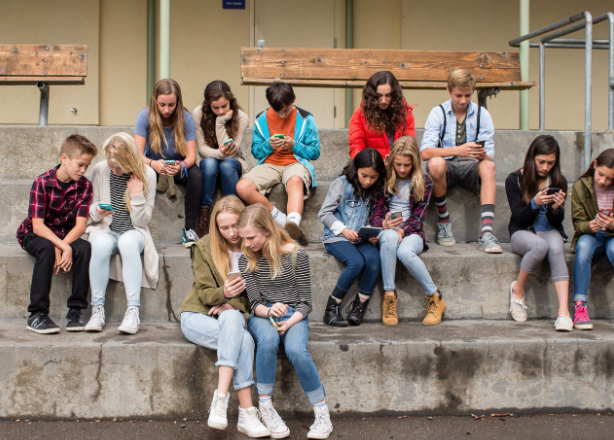How Smartphones Affect The Teenage Brain
March 29, 2023
Over the past few decades, there have been major swings in teenage well-being, physically and mentally. In many areas, teenage well-being has worsened. Suicide rates for all teenagers began rising in 2008, due to newer iPhones being created and sent out to the public. Multiple studies have shown that due to social media and other softwares, the rate of teenagers interacting in person has dropped significantly. So has sleep.
There have been many debates on this topic. Whether technology deserves the blame, or the fame. Although there are still many uncertainties, smartphones and other technologies are the main cause of the problem between teenagers, and even adults. Even more recent positive outcomes are pointed towards smartphones. Teen pregnancies, vehicle deaths, and bullying rates have gone down due to teenagers spending less time with others, and more time by themselves. Although there are some positive effects of technology, the negative effects outway the positive. Average test grades have dropped, overall class grades have dropped, and many teenagers no longer strive above a 70%, since this is now the new average grade.
In the 1950’s school children feared nuclear demolition. The 1960’s were a time of riots, assassinations, murders of civil rights activists, and the Vietnam War. In the 1970’s overpopulation caused food shortages. None of these terrible events weighed down on children’s mental health like today.
Since the release of Facebook, mental health in everyone has deteriorated. Some paid others to quit Facebook, causing the ‘quitters’ of Facebook to report a sense of betterness after doing so. 55 studies have found that social media and mental health issues, including obesity and other physical health problems, are correlated. Lisa Damour, a psychologist, said that teenagers should rarely have their phones in their bedrooms, especially at night. This is due to how sleep impacts one’s mental health. For younger teens, Damour suggests they should only have back and forth texting, and no social media. For the older teens, they can have social media, but still have boundaries. In many studies it has been suggested that parents should set screen time limits on their children’s phone, and even for themselves. This is because for the younger generation, it is hard to overall control themselves. The screens allow communication throughout the world, endless videos to relieve boredom, and more. All in all, we do not need to completely cut out smartphones, social media, and other apps. We simply need to decrease our screen time, and it starts by finding new ways to cope with boredom off of the screens.
Cites
https://messaging-custom-newsletters.nytimes.com/template/oakv2?campaign_id=9&emc=edit_nn_20230227&instance_id=86393&nl=the-morning&productCode=NN®i_id=203945409&segment_id=126395&te=1&uri=nyt%3A%2F%2Fnewsletter%2F9c934a82-da36-5180-816f-7312c52e2a72&user_id=3fe21e664b55fe464921a4393ad1b5e4
https://www.google.com/url?sa=i&url=https%3A%2F%2Fwww.geekwire.com%2F2016%2Fscreenagers-documentary%2F&psig=AOvVaw16hZxBW7KsJ9sRXeyeZ0Eb&ust=1678202816970000&source=images&cd=vfe&ved=0CAwQjRxqFwoTCJjzkvDOx_0CFQAAAAAdAAAAABBi


